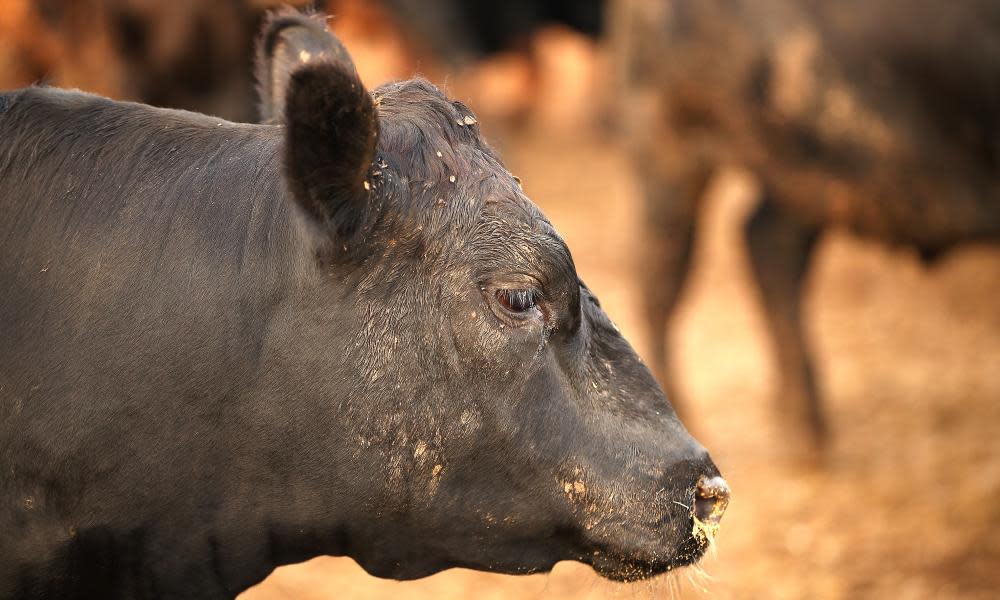Post-Brexit Britain should phase out tariffs on food, says thinktank

Britain should abandon tariffs on American and Argentinian meat products after Brexit to bring consumer food prices down, according to a leading rightwing thinktank.
Policy Exchange said the UK should phase out tariffs on agricultural products, saying they raise prices and complicate trade deals, although critics say that would pave the way for hormone-treated beef or chlorine-washed chickens, currently banned under EU law, to reach British supermarket shelves.
The report, Farming Tomorrow, says post-Brexit Britain should grasp the first opportunity in 40 years to steer agricultural policy and give consumer interests “proper emphasis”.
It says that the UK should unilaterally phase out tariffs that increase consumer food prices and complicate future trade deals and that the EU’s common agricultural policy should be replaced by a new focus on payments for the environment.
The thinktank, which was founded by Conservatives including the now environment secretary, Michael Gove, the former minister of state for skills, Nick Boles, and another former minister, Francis Maude, says Brexit is “a once-in-a-generation chance to reform Britain’s environmental policy”.
It says that the EU policy has hindered evidence-based farming and that the British food regulator should get new powers to review scientific evidence as part of efforts to unleash free trade in agriculture.
Rates on individual products can vary wildly. Although the average EU agricultural tariff is 8.5%, EU rates for fresh beef and veal can add up to 65% to the cost of boneless cuts, while boneless mutton is 72% more expensive, potentially making these products expensive for British consumers.
The majority of US chickens – 97% – are washed in chlorinated water after slaughter. Last week Michael Gove spoke out against the practice, putting him at odds with trade secretary Liam Fox, who said it posed “no health issue”.
The American farming industry is expected to push for agriculture to be included in any food deal.
Policy Exchange’s report suggests that British farmers could choose whether to meet EU standards after Brexit if they wish to keep selling products into the bloc, or instead match British standards and those in international markets outside the EU.
The thinktank advocates clear labelling on food products to “allow the public to make their own decisions about what matters to them”. It also recommends replacing the CAP with a new system that rewards farmers on criteria such as biodiversity and flood prevention, rather than paying them production subsidies.

 Yahoo News
Yahoo News 
